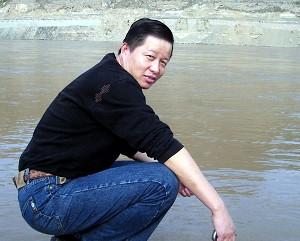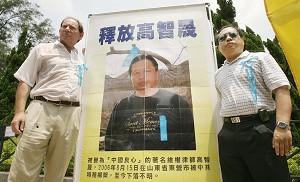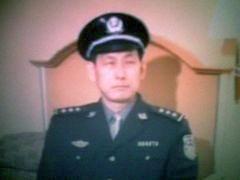Chinese government restrictions on lawyers could intensify social unrest in China by depriving citizens of a peaceful channel for seeking compensation, Human Rights Watch (HRW) said in a recent report.
The 71-page report, which was published Tuesday, criticizes restrictions that were introduced in March of this year. According to HRW, the regulations, known as the “Guiding Opinions on Lawyers Handling Mass Cases,” are a step backwards for rule of law in China.
“These regulations relegate lawyers to the role of government informers and Ministry of Justice subordinates,” said Sophie Richardson, deputy Asia director at HRW. “If legal avenues look futile to protesters, it could intensify increasing levels of social unrest.”
According to the report, the Guiding Opinions focus on “mass cases” involving ten or more plaintiffs, allowing local authorities to interfere. While intervention has been happening for years, the regulations systemize this infringement on lawyers’ independence by requiring them to accept “guidance” from government judicial bureaus.
The report says this could potentially lead to completely ineffective legal channels. “For example, lawyers representing rural residents displaced by a highway project would have to accept the ”guidance“ of the departments of the very authorities that had authorized the eviction in the first place,” it says.
The regulations also introduce specific requirements for mass cases that do not exist for other cases and which make it less likely lawyers will take them on. The most significant of these, according to the report, is the need for lawyers’ to get their firms’ permission to accept such cases and the declaration that lawyers will be held liable if disputes “intensify.”
The report speculates that the restrictions are the Chinese Communist Party’s (CCP) response to a sharp increase in public protests. In recent years, the number of demonstrations has risen sharply in China, with a 2005 Chinese government estimate citing 87,000 “mass incidents.”
In several cases, lawyers and activists have attempted to help petitioners get their grievances addressed through the courts. HRW says the regulations are an attempt to quash this growing “rights protection” movement that is trying to hold Chinese officials accountable through litigation.
But as the Chinese government attempts to justify the regulations as needed to ensure social stability, HRW fears they will have an opposite effect.
“The restrictions effectively deprive people with lawful collective complaints of meaningful legal representation, and risk instilling a sense of futility about legal avenues of redress that may exacerbate social unrest in the future,” the report says.
A Step Backwards, Say Chinese Lawyers
According to quotations cited in the report, the Guiding Opinions have met with widespread criticism inside China. “The Guiding Opinions have attracted strong public denunciation,” said one online posting by a lawyer in Henan province. “They are a step back for lawyers and a disgrace for the entire legal profession.”
“I just glanced at the regulations: I feel a great danger for lawyers,” read another posting on the All-China Lawyer’s Association (ACLA) bulletin board.
The regulations have also been nicknamed “the incantation of the golden hoop,” a reference to the classical Chinese novel Journey to the West, says the report. In the story, the Monkey King wears a golden hoop around his head, which his master can tighten by reciting an incantation, causing his disciple insufferable pain.
“In substance [the Guiding Opinions] are putting another golden hoop spell on lawyers,” said one online comment. “This will tie down lawyers.”
According to the report, in addition to online postings, the legal community’s response also came in the form of a seminar organized in June. The meeting was attended by prominent legal experts and “rights protection” activists in Beijing and was chaired by Zhang Sizhi, a well-known legal scholar.
Sizhi reportedly said the Guiding Opinions were “a disaster” that was “sending back the legal profession to the situation of the 1980s.” He nevertheless encouraged lawyers to continue accepting sensitive cases, even if they get into trouble with the authorities.
“I am ready to shield you with my own body,” he said. “I am already almost 80 years old, but you have long days before you, [and] China will need your contribution.”
More Restrictions and Arrests since March
Since March, the lawyers’ initial fears appear to have played out as expected. As a result of the regulations and the new need for firms to approve cases, lawyers involved in sensitive cases confided to HRW that they had come under pressure from colleagues to stop working because of the dangers involved. In some cases, lawyers have been forced to quit their firms.
“Two days ago, the law firm I work for held a meeting to convey the spirit [of these Guiding Opinions],” one lawyer posted on the ACLA bulletin board. “As a result, lawyers are only allowed to speak about law, and must not incite petitioning activities, disturbances, sit-ins, and expose cases to the media. All this is not allowed … otherwise, you’re done.”
Other lawyers have faced more severe sanctions for taking up sensitive cases. Earlier this year, Chen Guangcheng, a self-taught rights advocate who exposed forced abortions was sentenced to four years in prison. Gao Zhisheng, named in 2001 as one of China’s top ten lawyers, has been detained since August on subversion charges after opposing the torture of Falun Gong practitioners. And Guo Feixiong, who had been providing legal advice to rural protestors, has been arrested on criminal charges.
Given these incidents and Chinese lawyers’ reactions to the regulations, HRW is calling on the Chinese government to repeal the restrictions and release the detained activists.
The report also urges the international community to publicly call for attorneys’ independence and to recognize that training programs for improving judicial administration will have little effect without complementary political support for lawyers in China working to advance rule of law.
“The adoption of the Guiding Opinions is a serious setback for access to the rule of law in China – a make-or-break issue for China today,” said Richardson, HRW’s deputy Asia Director, in a press release Tuesday.
“The international community should raise these concerns with the Chinese leadership and speak publicly in support of full protections for lawyers and rights activists.”


